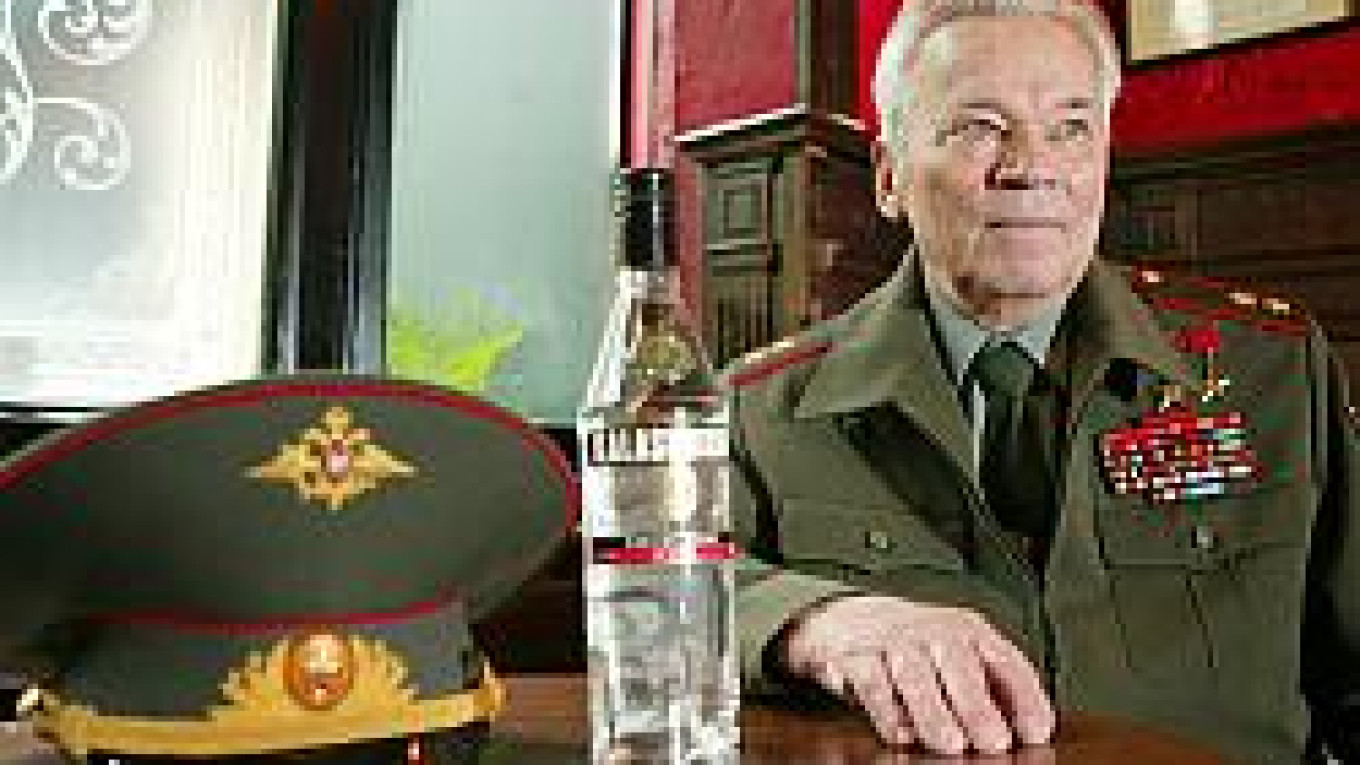What ties them together? Both are named after General Mikhail Kalashnikov.
Kalashnikov, 84, who invented the AK-47, was in London for the official release of Kalashnikov Vodka, which is distilled in St. Petersburg and exported to England.
The vodka retails for about $24 for a 750-milliliter bottle, and is available at several clubs throughout the British capital with a U.S. release planned for next year.
"We're marketing this as a premium brand," said Kalashnikov Vodka spokeswoman Sophy Geering.
It is the brainchild of entrepreneur John Florey, a graduate of London University, Cambridge University and London's Imperial College.
The general lives in the Siberian city of Izhevsk, where he works as a mechanical engineer at the Izhmash Mechanical Engineering Plant.
Kalashnikov agreed to lend his name to the brand and was named honorary chairman of the new vodka company.
Though Kalashnikov vodka has yet to reach the United States, some U.S. anti-gun-violence organizations are wary of the vodka's association with the assault rifle, particularly at a time when the U.S. national assault weapons ban has expired.
"We'd hope the general would agree that his weapon was never intended for civilian use, just as he'd agree that his vodka should be consumed responsibly," said Peter Hamm, communications director for the Washington-based Brady Campaign to Prevent Gun Violence.
"And obviously, we'd hope he'd agree that the people enjoying his vodka should not have anything to do with his weapons."
Kalashnikov, a former tank commander, designed the AK-47 assault rifle after being wounded in World War II, out of fear that the Germans were better equipped than their Allied foes.
The Red Army adopted his design in 1947, with the weapon's short name meaning "Automatic gun of Kalashnikov, 1947."
The weapon went on to become the weapon of choice for both communist armies and many criminal and guerrilla groups around the world.
Some estimates say there are now as many as 100 million AK-47s in existence.
A Message from The Moscow Times:
Dear readers,
We are facing unprecedented challenges. Russia's Prosecutor General's Office has designated The Moscow Times as an "undesirable" organization, criminalizing our work and putting our staff at risk of prosecution. This follows our earlier unjust labeling as a "foreign agent."
These actions are direct attempts to silence independent journalism in Russia. The authorities claim our work "discredits the decisions of the Russian leadership." We see things differently: we strive to provide accurate, unbiased reporting on Russia.
We, the journalists of The Moscow Times, refuse to be silenced. But to continue our work, we need your help.
Your support, no matter how small, makes a world of difference. If you can, please support us monthly starting from just $2. It's quick to set up, and every contribution makes a significant impact.
By supporting The Moscow Times, you're defending open, independent journalism in the face of repression. Thank you for standing with us.
Remind me later.


